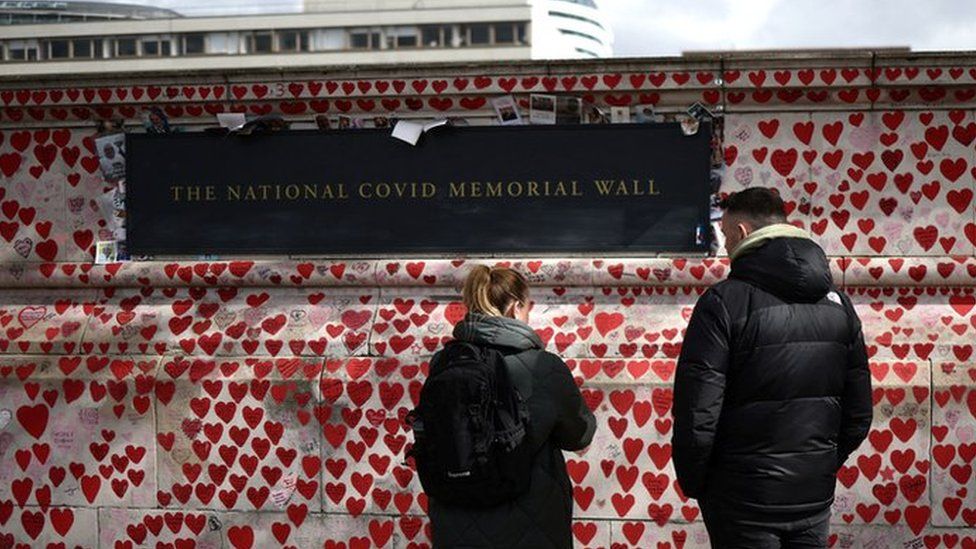
More than 226,000 people in the UK have died with Covid registered as one of the causes on their death certificate
The second round of Covid inquiry public hearings examining the UK’s handling of the pandemic starts on 3 October.
Sessions will focus on the response of central government and how ministers and politicians made decisions, as well as how well Westminster worked with the devolved administrations in Scotland, Wales and Northern Ireland.
The government challenged the inquiry’s request for WhatsApp messages sent to and from former prime minister Boris Johnson, but was forced to provide them by the High Court.
What is a public inquiry?
Public inquiries respond to “public concern” about events. They are established and funded by the government, but led by an independent chairperson.
An inquiry can demand evidence and compel witnesses to attend.
No-one is found guilty or innocent, but lessons learned are published. The government is not obliged to accept any recommendations.
Mr Johnson said the response would be “under the microscope”.
Who is leading the Covid inquiry?
She previously led the inquests into the 7 July London bombings.
Baroness Hallett promised the inquiry would be “thorough and fair”
How does the inquiry work?
Work in four areas has already begun:
- resilience and preparedness
- core UK decision-making and political governance
- the impact of Covid on healthcare systems
- vaccines, therapeutics and antiviral treatment
Future strands will consider:
- the care sector
- government procurement and PPE
- test-and-trace
- the government’s businesses and financial responses
- health inequalities
- education, children and young people
- other public services
There is no specific timescale for how long the inquiry will last.
What will the second round of public hearings cover?
The inquiry will look closely at decisions taken by the prime minister and cabinet ministers, and the advice received from civil servants and senior political, scientific and medical advisers between early January and late March 2020, when the first national lockdown was imposed.
Who gave evidence during the first public hearings?
The first public hearings, linked to the UK’s resilience and preparedness, took evidence from 69 independent experts and former and current government officials and ministers.
These included former health secretaries Jeremy Hunt and Matt Hancock, former prime minister David Cameron and former first minister of Scotland, Nicola Sturgeon.
The inquiry also heard from the UK government’s chief medical adviser during the pandemic, Sir Chris Whitty, his predecessor Prof Dame Sally Davies, and the government’s chief scientific adviser, Sir Patrick Vallance.
Prof Dame Sally Davies tells the Covid inquiry that “it wasn’t just the deaths, it was the way they died”.
When will the inquiry publish conclusions?
The next public hearings for the third area of examination – the impact of the pandemic on healthcare systems across the UK – are expected to run for 10 weeks from the autumn of 2024.
How can the public get involved?
Members of the public are invited to share their experiences through the inquiry’s Every Story Matters project.
Why did the inquiry want ministers’ WhatsApp messages?
However, there was a delay in providing messages sent by Mr Johnson before May 2021, because these were held on a mobile phone which had been turned off and securely locked away after a security breach.
Related Internet Links
The BBC is not responsible for the content of external sites.